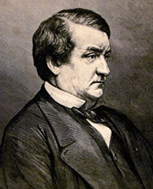Mayo, Lord
Mayo, Lord (1822-1872) was the Viceroy and Governor General of India from 1869 to 1872. Son of the Fifth Earl of Mayo, he was born on 21 February 1822, christened Richard Southwell Bourke and graduated from Trinity College, Dublin. He had held the office of chief secretary for Ireland before Disraeli appointed him to succeed Lord lawrence.

He inherited his father as the Sixth Earl and came to India as Lord Mayo. He continued the policy of Nonintervention followed by his immediate predecessors and through diplomatic maneuver secured the good will and friendship of Sher Ali, Ameer of Afghanistan, who met the viceroy at Ambala in 1869.Mayo secured the Russian recognition of the Oxus as the Northern Afghan border. Perhaps his great achievement was the reform of financial management. He increased the salt duty and income tax, enforced economy in the public administration, introduced decentralised finance with provision for fixed block grants for five years to the provincial governments and substantially improved the finances of the country.
Formerly the centre controlled all finances and the provinces had to make out cases for allocation of funds and spent what they could get.
It was during his administration that the first general census in India was undertaken in 1870. He organised a statistical survey of the country and created the department of agriculture and commerce. While he inherited serious deficits, untrustworthy estimates and accounts in arrears and statistics incomplete, he left behind substantial surplus, estimates worthy of confidence and accounts and statistics punctual and full. To educate the young sons of the Indian princes and chiefs he founded Mayo College at Ajmer.
On 8 February 1872 he was stabbed to death by a Pathan convict at the Andamans while on a visit there. His body was carried to Ireland. [KM Mohsin]
